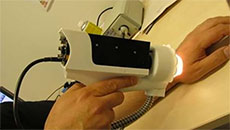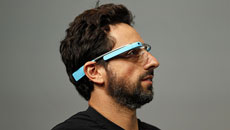Do you often play guessing games at home how would your child look like when he/she grows old? Well, ask a computer and you can see how your child would age!
Researchers at University of Washington (UW) have developed an automated age-progression software that generates images of a young child's face as it ages through a lifetime.
The technique is the first fully automated approach for aging babies to adults that works with variable lighting, expressions and poses.
Using one photo of a 3-year-old, the software automatically renders images of his face at multiple ages while keeping his identity.
"Aging photos of very young children from a single photo is considered the most difficult of all scenarios, so we wanted to focus specifically on this very challenging case," said Ira Kemelmacher-Shlizerman, an assistant professor of computer science and engineering at UW.
The researchers took photos of children in completely unrestrained conditions and found that their method worked remarkably well.
The shape and appearance of a baby's face - and variety of expressions - often change drastically by adulthood, making it hard to model and predict that change.
This technique leverages the average of thousands of faces of the same age and gender, then calculates the visual changes between groups as they age to apply those changes to a new person's face.
More specifically, the software determines the average pixel arrangement from thousands of random Internet photos of faces in different age and gender brackets.
An algorithm then finds correspondences between the averages from each bracket and calculates the average change in facial shape and appearance between ages.
"These changes are then applied to a new child's photo to predict how he or she would appear for any subsequent age up to 80," Kemelmacher-Shlizerman noted.
Real-life photos of children are difficult to age-progress, partly due to variable lighting, shadows, funny expressions and even milk moustaches.
To compensate for these effects, the algorithm first automatically corrects for tilted faces, turned heads and inconsistent lighting, then applies the computed shape and appearance changes to the new child's face, the researchers explained.
The research team would present its findings at the 'IEEE computer vision and pattern recognition conference' in Columbus, Ohio in June.




